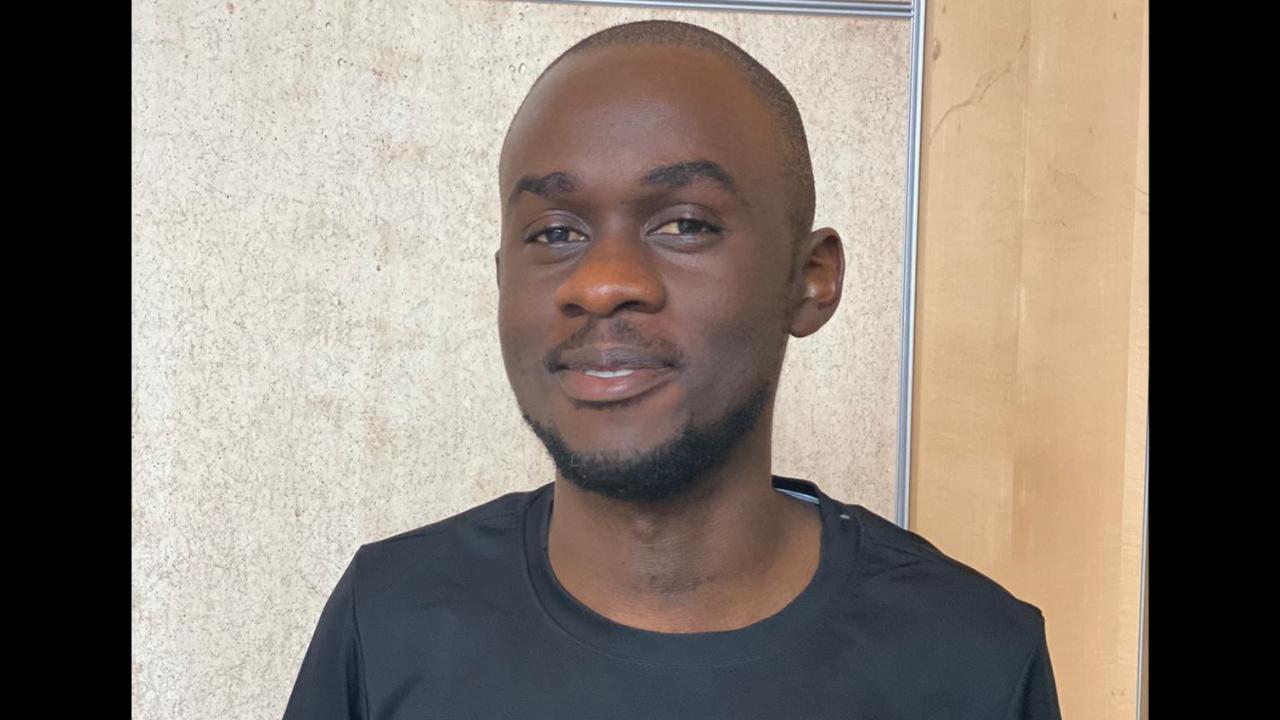
Student Spotlight: Ismael Mayanja
Biological systems engineering M.S. student Ismael Mayanja is a problem solver. Inspired by the need to help farmers in his home country of Uganda, Mayanja is refining his skills as a postharvest engineer at UC Davis to design machines that help reduce crop loss after harvest and improve food production systems around the world.
Ugandan farmers face a number of unique challenges. First and foremost, over 30% of the country’s annual post-harvest losses are attributed to poor handling, transportation and storage after harvest. In addition, 80 % of farmers are small-scale farmers, meaning they operate on less than five acres, and farmers in the most rural areas may not have access to electricity or fuel. This renders industrial farm equipment that’s used in the U.S. unfeasible and makes creating appropriate technology that suits these conditions critical to the country’s economy.
“I realized that I had to contribute,” said Mayanja. “The challenge is that the machines that exist are not really applicable because they are created for a different market, so there’s this gap that needs to be filled.”
Award-winning designer
Mayanja’s first design experience was as an undergraduate at Makerere University in Uganda, where he designed a pedal-operated machine (POM) cleaner to clean maize grain. By pedaling, farmers rotate a cylindrical cleaning sieve (trommel) that filters out stones, crushed cobs and chaff. The POM cleaner offered a faster and more efficient way to clean maize without a motor or engine, meaning it can be used for remote areas with no access to electricity or fuel.
The design garnered international recognition. He won a CGIAR Research Program on Maize (MAIZE) Youth Innovator Award – Africa in Zambia in 2019 and the Ugandan government has taken on the design to develop and field test it for deployment in the eastern part of the country.
“I’m a huge fan of innovation,” he said. “I always love the designing process and in my free time, I think about the challenges facing the farmers in Africa—specifically Uganda—and try to come up with solutions.”
After earning his B.S., Mayanja decided to go to graduate school to learn more. He connected with biological and agricultural engineering (BAE) assistant cooperative extension specialist Irwin Donis-González, who was impressed by his design track record and invited him to join his lab in fall 2019.
In the lab, Mayanja is developing an on-farm stockpile air dryer for almonds. While effective, the current almond drying process of shaking and subsequently sun air drying almonds can be negatively affected by environmental conditions, and can also generate a lot of dust. His solution is to dry almonds in a raised stockpile, using a combination of hot air from a fan and heat from the sun.
“Rather than have the almonds dry naturally in the sun for 2-3 weeks, we are trying to cut that time to possibly a week or less while reducing the dust emitted,” he said.
Since coming to UC Davis, Mayanja feels he has learned a lot and already become a much better engineer. He especially credits his advisor Donis-Gonzalez with introducing him to new ways of thinking and designing.
“I thought I was a good designer and writer, but I’m learning whole new things like there’s a veil being lifted off my eyes,” he said.
Outside of engineering, he loves playing and watching soccer. Through playing pickup games in town, he’s found that the sport is a universal language that helped him feel more at home after coming to the U.S.
“The rules are the same all over the world, so when I came here, it was great to find that common ground with some people,” he said.
Once he graduates, Mayanja plans to return to Uganda with a new skill set and perspective from UC Davis. As he does, he knows he will be ready to respond to any problems he’s given to improve the livelihoods of farmers in Uganda and around the world.
“My passion is always problem-driven,” he said. “My project [at UC Davis] provides a foundation of knowledge and experience which I hope to apply when I go back home.”
